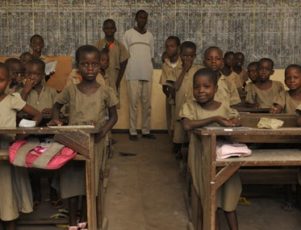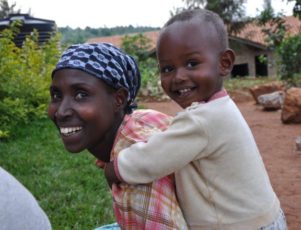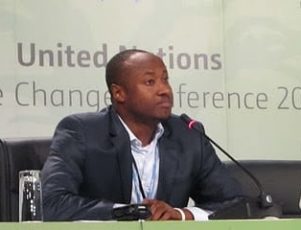The National Institute of Statistics and Economic and Demographic Studies (INSEED), Togo’s national poverty statistics tracking organization, recently released their findings for poverty levels in the country for 2015.
Between 25 August and 30 September of 2015, INSEED surveyed 2,400 households to measure the living conditions of the Togolese. The conclusion of the 2015 survey is significant for a variety of reasons, but none more important than the expiration of the United Nation’s Millennium Development Goals (UNMDGs). The UNMDGs were the world’s first data-driven goals meant to end global poverty by 2015 or 2020, depending upon the goal. Drawing upon the eight vastly general UNMDGs, INSEED used broad poverty indicators to measure the status of their citizens: access to basic social services; food safety; education and literacy; subjective poverty and monetary poverty. INSEED’s Technical Director Akoly Gentry said that survey results indicated that economic growth had occurred in Togo, although more than half of the Togolese continue to live in poverty and are subjected to the health, education and employment challenges that stem from continued poverty. The overall conclusion was that, between 2011 and 2015, economic development had reached the poorest of the poor in some way.
Conducting the Survey: Why Now?
With the expiration of the majority of the UNMDGs came the birth of the UN’s latest broad development goals, called the Sustainable Development Goals (SDGs). Where there were once 8 MDGs, there are now 17 SDGs, and in order to give a strong baseline for Togo’s SDG targets, the survey was necessary.
59% of the Togolese are 25 years old or under: continued economic development is imperative for a generation that never knew the harsh reign of colonialism and have grown up in a world where they are well aware of the wealth of the outside world. In surveying the levels of poverty of a diverse set of households around the country, INSEED was able to gather a comprehensive set of data with which to inform their development plans.
Access to Basic Social Services
Many households in the developing world do not have access to what are considered basic necessities in the western world, including electricity and improved drinking water. The proportion of households now using electricity as their main mode of lighting is 48.3%, up 9.1 percentage points since 2011. As the use of electricity has increased, the use of other/traditional modes of lighting has decreased. The use of oil lamps, the cause of many house fires and childhood burns, declined from 23.5% in 2011 to 3.1% in 2015. This alone is a massive achievement for Togo.
In countries where tap water is not fit for consumption or available at all, citizens must rely upon bottled or bagged water. In 2011, 55.9% of Togolese were utilizing drinking water, a figure that has improved to 61.8% in 2015. The availability of improved drinking water is a major component of development: clean water promotes good health and hygiene, prevents waterborne illnesses such as cholera and giardia, and prevents unnecessary deaths.
Food Safety
In the developed world, bananas and oranges are available 365 days a year, regardless of the growing season. For the billions of people living in the developed world, access to calories is not guaranteed due to famines. Famines are, of course, not a natural disaster: they occur when food management, transportation and storage systems fail. In 2011, nearly half of the population had difficulty finding food. The survey revealed that now, in 2015, one-third (33.1%) of the population has difficulty accessing adequate nutrition. These are institutional failures endemic in impoverished countries. Whether it is the physical unavailability of food or the inability of an individual to find enough capital to obtain food, one third of Togo’s population is not considered food secure. In an era where obesity threatens to overshadow cardiac disease as a leading cause of death in the western world, this is unacceptable.
Health Indicators
Health is closely linked to food and clean water access. Be it illness from contaminated water, uncooked or unclean meat or pesticide covered vegetables, these two are inextricably linked. 23.9%, or nearly one quarter, of Togolese surveyed reporting being ill within the past four weeks, up from 20.6% at the last survey. Illness was not clearly defined, and thus is an entirely subjective indicator. According to the CIA World Factbook, Togo’s risk of disease is “very high”: malaria, dengue and yellow fever are a threat particularly during rainy seasons when mosquitoes thrive; typhoid and hepatitis A as well as meningococcal meningitis are also listed as high risk diseases. The physician density is 0.05 physicians per 1,000 people–since the average size of a Togolese household is not listed, this statistic cannot be extrapolated to the survey group. It is safe to say that, at best, there may have been one doctor available to the entire group.
Education and Literacy
66.2% of the population over the age of 15 is literate according to INSEED’s survey results–according to the CIA World Factbook, 78.3% of males over 15 and just 55% of women over 15 are literate, showing gross education discrepancies between genders. Overall enrollment rates in primary and secondary schools (which does not measure attendance) improved from 81.8% to 84.8% and 41.0% to 49.2%, respectively.
Employment, Subjective Poverty and Monetary Poverty
The reported unemployment rate declined from 6.5% to 3.4% while the underemployment rate, or the percentage of people who are employed (usually through the selling of their crops at market) but who consider their employment situation insufficient for any number of reasons, rose from 22.8% to 24.9%.
The percentage of households who consider themselves to be poor in comparison to those around them fell from 81.4% to 61.7%. This does not necessarily mean that nearly 20% of the population became less poor, but that they perceive themselves as more equal to their peers.
The incidence of poverty as measured by international organizations such as the World Bank, International Monetary Fund and UN, fell from 58.7% to 55.1% in 2015. The GINI inequality co-efficient, meaning the proportion of people who own wealth in the country, was reported as 38 (although this is not recorded by the World Bank)–a score of 0 means a country has perfect equality, and a score of 100 means the country has perfect inequality (one person would own all of the wealth). By comparison, the United States has a GINI co-efficient of 41.1. Thus, the lower a score, the more equal the society.
The incidence of poverty increased from 28.5% to 34.8% in the Greater Lome region, as well as in some rural areas.
To Go Forward
Poverty is difficult to measure. Standards were created by the very countries that are partially to blame for the stunted development of enormous swaths of the world. The existing modes of development, where a country is given a loan full of conditionality (that often cut social programs), accompanied with crippling loan repayment rates, clearly does not work.



